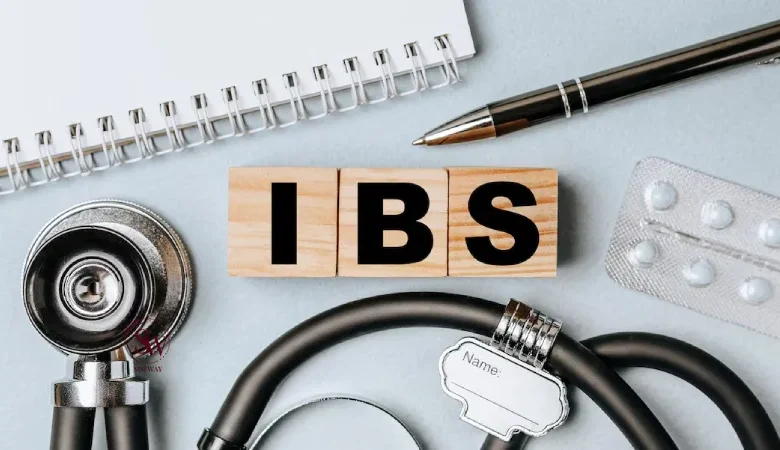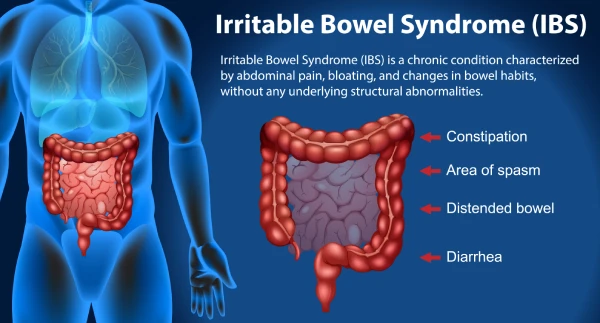What is IBS?

Irritable Bowel Syndrome (IBS) is a gastrointestinal disorder that affects millions of individuals worldwide. Characterized by a cluster of symptoms including abdominal pain, bloating, and changes in bowel habits, IBS can significantly impact a person’s quality of life. Despite its prevalence, IBS remains widely misunderstood. In this comprehensive guide on SISIWAY, we delve into the intricacies of IBS, exploring its causes, symptoms, diagnosis, and management strategies.
What is Irritable Bowel Syndrome (IBS)?
Irritable Bowel Syndrome, commonly known as IBS, is a functional gastrointestinal disorder characterized by a constellation of symptoms including abdominal pain, bloating, and alterations in bowel habits. It is a chronic condition that requires long-term management.
Understanding the Causes of IBS

The exact cause of IBS remains elusive, but several factors are believed to contribute to its development:
-
- Abnormal Gastrointestinal Motility: Individuals with IBS often experience abnormal contractions of the muscles in their intestines. These irregular contractions can lead to pain, bloating, and alterations in bowel habits characteristic of IBS.
- Intestinal Inflammation: Some researchers suggest that low-grade inflammation in the intestines may play a role in the development of IBS symptoms. Although the inflammation observed in IBS is typically milder than that seen in inflammatory bowel diseases like Crohn’s disease or ulcerative colitis, it may still contribute to gastrointestinal discomfort and dysfunction.
- Altered Gut Microbiota: The gut microbiota, composed of trillions of bacteria residing in the gastrointestinal tract, play a crucial role in maintaining intestinal health and function. Disruptions in the balance of gut bacteria, known as dysbiosis, have been implicated in the pathogenesis of IBS. Changes in the composition and diversity of the gut microbiota may influence intestinal motility, immune function, and the production of neurotransmitters involved in gut-brain communication.
- Psychological Factors: Stress, anxiety, and other psychological factors can significantly impact gastrointestinal function and contribute to the development or exacerbation of IBS symptoms. The gut-brain axis, a bidirectional communication network linking the central nervous system with the enteric nervous system of the gut, plays a vital role in regulating intestinal motility, secretion, and sensitivity. Disruptions in this communication pathway may contribute to the visceral hypersensitivity and altered bowel function observed in individuals with IBS.
- Genetic Predisposition: While not fully understood, there appears to be a genetic component to IBS, as evidenced by the increased risk of the condition in individuals with a family history of IBS. Several genetic variations associated with IBS susceptibility and symptom severity have been identified through genome-wide association studies (GWAS) and candidate gene analyses. However, the precise genetic mechanisms underlying IBS remain incompletely understood and are likely influenced by interactions with environmental and psychosocial factors.
Recognizing the Symptoms of IBS

The symptoms of IBS can vary widely among individuals, but common manifestations include:
- Abdominal pain or discomfort, often relieved by bowel movements
- Bloating and distension of the abdomen
- Changes in bowel habits, including diarrhea, constipation, or alternating between the two
- Excessive gas or flatulence
- Mucus in the stool
Diagnosing IBS
Diagnosing IBS can be challenging due to the absence of specific diagnostic tests. Instead, healthcare providers rely on a combination of medical history, physical examination, and symptom criteria outlined in established guidelines, such as the Rome criteria. Diagnostic tests such as stool studies, blood tests, and imaging studies may be performed to rule out other gastrointestinal conditions that mimic IBS symptoms.
Management and Treatment of IBS

While there is no cure for IBS, various treatment strategies aim to alleviate symptoms and improve quality of life:
- Dietary Modifications: Some individuals with IBS find relief by avoiding certain foods that trigger symptoms, such as dairy, gluten, or high-FODMAP foods. A low-FODMAP diet, which restricts fermentable carbohydrates, has shown efficacy in managing IBS symptoms for some patients.
- Medications: Over-the-counter and prescription medications may be prescribed to manage specific symptoms of IBS. These include antispasmodics to relieve abdominal pain, laxatives for constipation, and anti-diarrheal agents for diarrhea-predominant IBS.
- Stress Management: Techniques such as cognitive-behavioral therapy (CBT), relaxation exercises, and mindfulness-based stress reduction may help individuals with IBS better cope with stressors that exacerbate symptoms.
- Lifestyle Modifications: Regular exercise, adequate sleep, and maintaining a healthy lifestyle can contribute to symptom management in individuals with IBS.
Can IBS Cause Back Pain?
Yes, Irritable Bowel Syndrome (IBS) can sometimes cause back pain, though it’s usually due to referred pain or related muscle tension rather than a direct effect on the back itself. The nerves connected to the intestines can share pathways with the spine, leading to discomfort felt in the back when experiencing abdominal symptoms like bloating or cramping. Additionally, stress and muscle tension associated with IBS can contribute to back pain. However, it’s essential to consult a healthcare provider to rule out other potential causes of back pain and to develop an appropriate management plan tailored to individual needs.
Frequently Asked Questions (FAQs)
Is IBS a serious condition?
While IBS does not cause serious damage to the intestines or increase the risk of colorectal cancer, it can significantly impair quality of life and lead to discomfort and distress.
Can IBS be cured?
Currently, there is no cure for IBS. However, with appropriate management strategies, many individuals can effectively control their symptoms and lead fulfilling lives.
Are there any complications associated with IBS?
While IBS itself does not cause complications such as intestinal damage or cancer, persistent symptoms can impact mental health and overall well-being.
Can stress worsen IBS symptoms?
Yes, stress is a common trigger for IBS symptoms. Learning stress management techniques and adopting coping strategies may help reduce symptom severity.
Are there any support groups for individuals with IBS?
Yes, there are numerous online and in-person support groups where individuals with IBS can connect with others facing similar challenges, share experiences, and access valuable resources.
In conclusion, Irritable Bowel Syndrome (IBS) is a complex gastrointestinal disorder characterized by abdominal pain, bloating, and changes in bowel habits. While the exact cause of IBS remains unclear, various factors including abnormal intestinal motility, inflammation, and psychological factors may contribute to its development. Effective management of IBS involves a combination of dietary modifications, medications, stress management techniques, and lifestyle changes tailored to individual needs. By understanding the causes, symptoms, and treatment options for IBS, individuals can take proactive steps to manage their condition and improve their quality of life.




